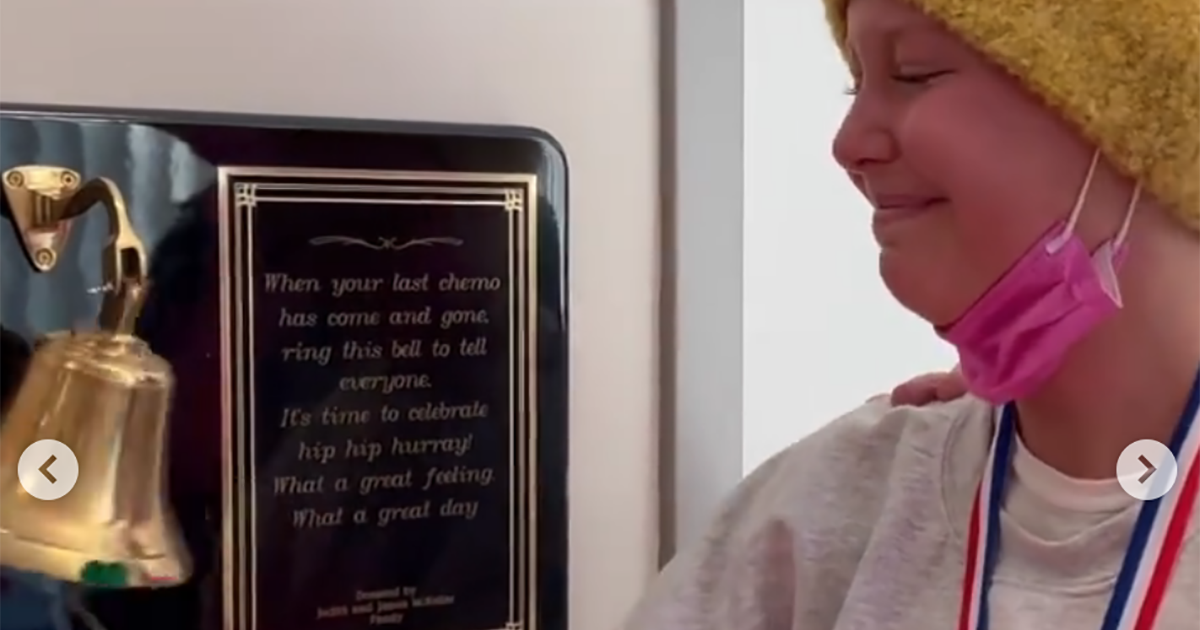Chemotherapy & Radiation for Breast Cancer
- Actress Miranda McKeon, 19, has finished chemotherapy treatment for breast cancer, something she says is almost “better than Christmas morning!” But her battle isn’t over.
- She shared that she’ll have surgery next month and then about 20 to 30 rounds of radiation treatment. She didn't say what kind of surgery she'll be having.
- The number of women diagnosed between ages 20 and 29 with stage 1, 2 or 3 breast cancer increased by 2% from 2000 to 2015. "The increasing incidence of cancer diagnosed in young women is certainly multifactorial, with some contributing elements that we don't fully understand," medical oncologist Dr. Payal Shah previously told SurvivorNet.
This is how actress Miranda McKeon, best known for her role in the television series Anne With an E, feels about finishing chemotherapy treatment for breast cancer. And she of course got to ring the bell.
Read MoreView this post on Instagram
In an Instagram post, McKeon thanked all her friends, family and those who have reached out to her on social media since her diagnosis. She also shared that she only feels about "25% done" with her treatment. While her chemo treatments are done which she finished Tuesday she'll have surgery next month and then about 20 to 30 rounds of radiation treatment. She didn't say what kind of surgery she'll be having in November.
Chemotherapy for Breast Cancer
The 19-year-old was diagnosed with breast cancer in June (the stage and type haven't been shared publicly) and has undergone eight rounds of chemo something she's been extremely candid about on social media.
Chemo uses strong drugs to kill cancer all over the body. If you have any type of cancer, you may get this treatment to shrink a tumor before surgery, afterward to get rid of any remaining cancer cells or on its own if you can't have surgery. Whether or not to have chemotherapy can also be a choice, depending on a woman's age, type of cancer and stage.
Related: Breaking Down the Major Shift in Chemotherapy for Breast Cancer
Chemo has always been a hot topic of discussion, but there's been significant advances to this therapy recently. Now, doctors have the Oncotype DX test to determine if a woman would be able to go through chemo and avoid serious side effects. If a person's score is low, it tells doctors that chemo isn't the best option for them; their prognosis won't improve with the treatment, so it's not worth putting them through the immense physical toll.
It's no secret that chemo is hard on your body; McKeon recognizes this. "I feel that chemo has left me a bit bare," she says.
"A lot of people say that life after treatment is sometimes harder than life during. I think this is because while getting chemo, we're just muscling through and holding on for dear life. And it's hard to heal your heart when you're barely holding on."
Radiation for Breast Cancer
Radiation is the use of high-energy rays to destroy cancer cells. This treatment is also used after surgery to lower the chance of the cancer coming back after treatment.
Many women undergo radiation as part of their treatment, like McKeon, especially if they opt for a lumpectomy (surgery to remove cancerous breast tissue along with a rim of normal tissue) instead of a mastectomy (surgery that removes the entire breast).
Related: Should I Have a Lumpectomy or Mastectomy?
Dr. Chirag Shah discusses the debates surrounding radiation treatments for breast cancer.
There are three main areas of debate surrounding radiation for breast cancer all with the focus of reducing side effects while maximizing outcomes, Dr. Chirag Shah, director of breast radiation oncology at the Cleveland Clinic Cancer Center, previously told SurvivorNet. There's the question of whether to radiate the whole breast versus partial breast radiation; there's debate about whether some patients even need radiation at all; and there's debate about which radiation techniques offer the best outcomes with the least side effects.
“We often believe that more treatment is better treatment,” he says. “But I would say that, when it comes to radiation therapy to the breast, what we’re learning is that shorter courses of radiation, like short course whole breast, may be associated with equal clinical outcomes and even the potential for reduced side effects.”
Having a Support System is Vital
When receiving a cancer diagnosis or going through treatment, a support system can do more than just run errands or handle everyday tasks; they can also provide the emotional support people facing cancer desperately need something McKeon can attest to.
In most of her photos and videos shared since receiving her breast cancer diagnosis, McKeon has been surrounded by her family and friends her support system. And in her latest Instagram post, she thanks them endlessly for their support.
Family Love and Support Makes a World of Difference During Cancer Treatment
For non-Hodgkin's lymphoma survivor Ramy Gafni, his family was there every step of the way while he went through treatment. His mother is actually a cancer survivor herself, and Garni says having that first-hand experience and advice was invaluable.
"She (his mother) said, 'It's so hard to see you go through it,'" Garni tells SurvivorNet. "'I wish I could take it from you and go through it for you.' My mom has had cancer three times, and she's still with us, happily. … She was my role model. I was like, 'Well, she got rid of it, got on with her life. And I'm going to do the same.'"
Contributing: Abby Seaberg
Learn more about SurvivorNet's rigorous medical review process.


